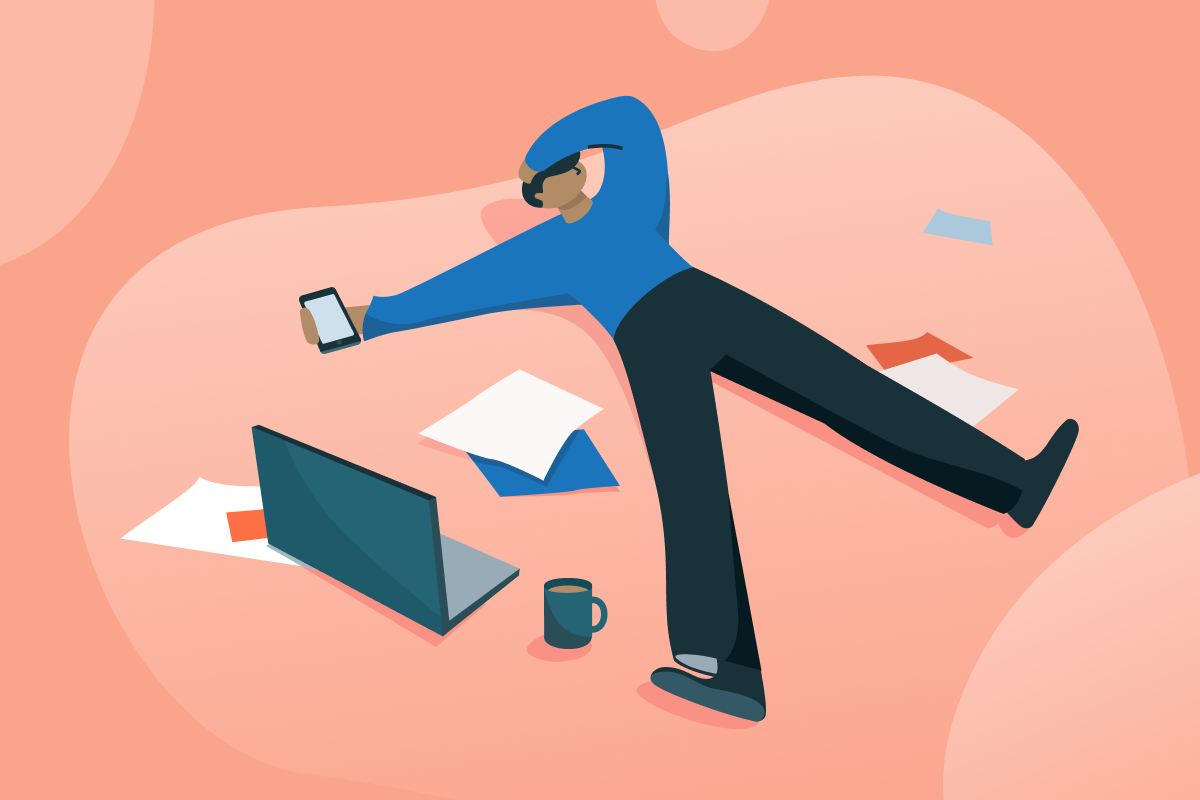Stress can kill you or at least make you feel like you’re dying at the time. That said, usually stressful situations only last for a short period of time. While there can be situations that surprise you or things that can take a bad turn to cause stress in the moment, often times stress in my experience is usually anticipating a future uncertain situation or thinking about something that you have done in the past that can have future consequences.
So, what are some strategies for staying focused and calm in these situations? One way is to focus on the tasks instead of your emotion about the task. That means planning each task in specific actionable detail as well as the duration that that task will take; a method that will take the uncertainty out of a task that you are trying to accomplish. When executing those tasks say the the task out loud and record yourself speaking them to confirm accuracy. This way you focus just on a small step as opposed to getting overwhelmed by the magnitude of an effort. As I mentioned previously it seems like stress comes when thinking too much about the past or future. Staying present in what you are doing in the moment eliminates stress.
Further, making the uncertain more certain will eliminate stress. I do this by recording and documenting all of my thoughts about a specific topic or problem I want to solve. I equate solving personal challenges or work challenges similar to how developers troubleshoot programs through a debug log. If you are unable to see the steps to creating a solution or achieving a goal in a tangible way then that can lead to stress. If very detailed planning or practice can be done and documented before going into a high pressure situation then it takes the thinking and problem solving out of the moment when executing which also reduces stress.
Sometimes reducing stress means just making discipline a habit. If you are able to create a routine of activities to manage your personal life and are able to execute them in a precise and efficient way generally then when you are in situations that stress most people out you will be able to revert to your habits of breaking tasks into their constituent parts to be executed against. Further knowing that a personal to do list is met means that these tasks are not floating around as question marks in your head – which means that you can take on more complexity in other areas of your life that would cause stress otherwise.
Sometimes eliminating the situation altogether is a good way to reduce stress. If you continuously put yourself in a situation that causes anxiety repeatedly ask yourself if you really need to be the person to do it or does it really have to be done in the first place.
The other aspect of your stress may be how you are taking care of yourself. It sounds straight forward but it can be surprising how much this one can get away from you if it goes out of focus. Sometimes if you aren’t consistently getting enough sleep that can cause stress itself. Alternatively, having a poor diet with a lot of carbs and/or sugar can leave you with little energy and focus. Not having these two aspects of your life in line can make small tasks really stressful. You’d be surprised about how just fixing these two thing can reduce a lot of stress.
Having a consistent routine of repetitive tasks often times is a way to reduce stress. For me this is a predictability thing where I know exactly what is going to happen and how long it will happen for; a good thing especially if you’re chipping away at a big long term goal. Doing a repetitive task on a consistent basis helps you to see patterns better which may allow you to automate the task which reduces stress by getting more done by just doing less yourself.
When getting into conflict with others that can cause stress I focus on pausing before speaking. I have come to realize that relationships with others is in the long term more important than winning an immediate verbal battle. While you don’t want to get walked over don’t resort to getting really emotional or personal attacks – rather speak assertively but say polite things. The best approach to me is to avoid saying too much. Listen and ask questions to guide in a mutually beneficial direction. At the end of the day if you can’t get to a place that is mutually beneficial then just end the conversation for another day. Further on this don’t argue with yourself. Sometimes when anticipating arguments I tend to argue with myself to plan out how a discussion will go. This can cause a lot of stress and make you sort of crazy. Instead study negotiation and debate techniques that you can fall back on in these situations and detach emotionally from the outcome of a discussion. I find that listing out all possible outcomes of a situation and ranking them from more to less likely takes the uncertainty out of it as well as the emotion of focusing on a worst case scenario.
If you are under stressful situations on a continuous basis, it’s important to develop methods for detaching from that stress because if you are constantly under stress eventually you will start to feel it physically as headaches or just general body fatigue. When under stress the body produces cortisol which decreases with exercises. However, if there is continuously an excess of this in the body it can cause health issues like anxiety, depression, sleep problems, weight gain…you get the idea. Therefore, figuring out how to decrease cortisol through exercise and diverting mental focus is really a necessity to stay sane. If you can do these two things successfully then when you experience stress you’ll notice that you feel better generally after and will welcome stressful situations.
However, sometimes diverting mental focus from stress can be difficult to do. I do this well by listening to audiobooks and mentally repeating the words or as best of my ability repeat the words out loud. This way I divert my mental focus from the stress and learn a skill in the process that will make me more capable – all of which should in most scenarios decrease my stress as well in the moment. Another technique for mental diversion is to have a mantra. A mantra can help you get through a stressful situation in the moment and can help you to divert from stressful thoughts. For me I have a list of rules that help me generally get through my life better. My belief is that if I repeat these rules on a regular basis I will act to them as a habit and habitually use these rules to divert my mental focus. In these rules I feel like I control my actions and acting correctly allows me to have more control over my desired outcome. Having belief that I have control over my outcomes and my life reduces stress.
Another observation is that when I feel stress my thoughts are really fast. When I am continuously under stress my thoughts just generally race which is problematic for daily life. To resolve this issue I have set a metronome at 175 bmp and just spoke my thoughts while working out loud. When I set a pace to my thoughts in stressful situations I am able to get things done at a reasonable rate and slow down my thoughts. Keeping my thoughts consistent and at a moderate pace while still getting stuff done reduces my stress. In addition, the long term goal with this activity is to have thoughts at a consistent pace without a crutch of a metronome in all scenarios. With practice this will happen.
Stress will always be present in life. So, you may as well figure out to control it instead of it controlling you.



I’m not sure where you’re getting your info, but good topic.
I needs to spend some time learning much more or understanding more.
Thanks for excellent information I was looking for this information for my mission.